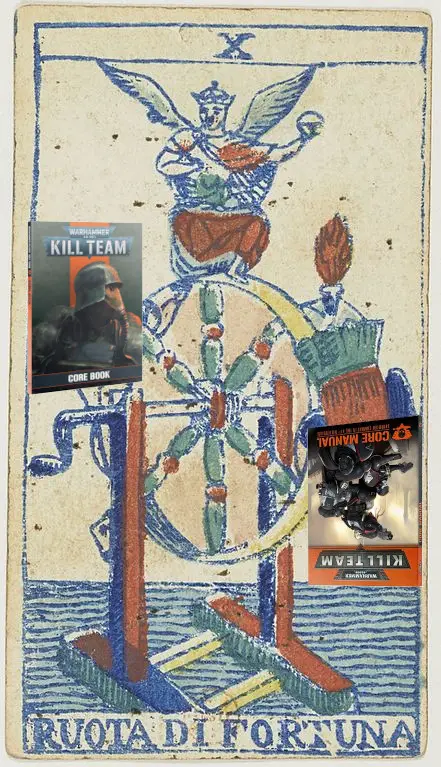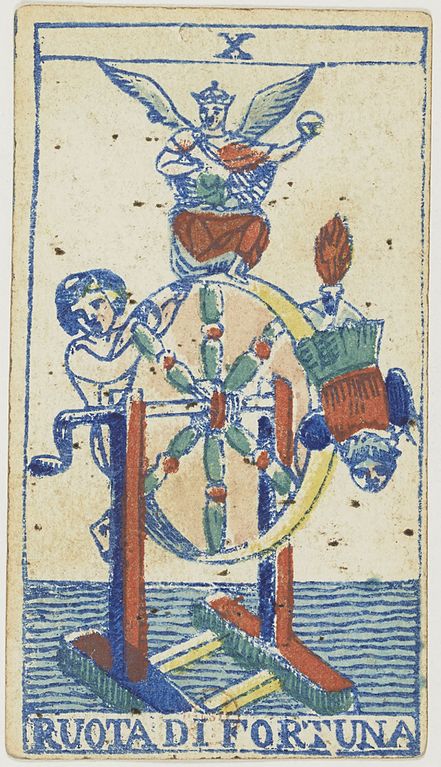Edition Fatigue – A Grognard’s Grumble
An Introduction to Edition Fatigue
At the time of writing a new Kill Team edition is available to pre-order. It is the 3rd edition under that title but it has only been three years since the last edition was first released. Worse, Kill Team is by no means unique in having short lived life spans for its editions.
All of Games Workshop’s main games for the last decade or more have had brutally short lifespans before being obsoleted by a new and often radically different edition.
Later in this article you will find a table of stats for the edition longevity of Games Workshop’s flagship games going back to the early days of Warhammer Fantasy Battles against a sample of the more significant wargames from alternative manufacturers. From this data it is apparent that even a four year lifespan is short, with six years being more typical, for both Games Workshop prior to around 2014 and alternatives now.

However all of Games Workshop’s main products have stepped up to a brutally short three year release cycle from about the 6th edition of Warhammer 40k and the last edition of Warhammer Fantasy Battles.
Warhammer 40000, Age of Sigmar and Kill Team have all followed this pattern with clockwork regularity since then: a new edition, then three years of supplements to buy, then another edition is released forcing the grognard gamer to rebuy everything to stay current.

The Problems with Frequent Editions
Some may wonder if frequent editions is really a problem at all. Does that not show the game is well supported? Does it not indicate the game is getting better and better, faster and faster? No, on both accounts and more to the point there are a number of problems for the consumer in this.
Increased Cost
The first and most obvious problem is that it increases the cost of participation. The cost of rulebooks may not be the most significant cost when put next to the cost of the models and the time it takes paint them but it is non-zero.
Also with all the supplements, expansions and faction specific rulebooks it can start to mount up in cost. For a relevant example, 2nd Edition Kill Team’s fairly complete rule book collection would come to nearly a £100 or so (Core Rules, Commanders, Elites and Annual). Actually given the small number of models needed to play Kill Team the rule books probably represent the larger cost.
We should divide that cost across the years it remains current. So if 2nd Edition had run for 6 years that would come out at half the cost of a short edition of 3 years. If remaining current is important to you then a 3rd edition will probably result in you spending another £100.
Of course increased costs for you potentially represents increased revenues for the producer. This is why short editions are advantageous to the producer, if they can get away with it.
The counter argument to this is that just because a new edition comes out one does not have to buy it. One can just use the old edition still. This is true but this creates a new more subtle problem and that is….
Splitting the Community
Regardless of the lifespan of an edition every time a new edition hits the grognard gamer faces the dilemma of whether or not to buy into it or continue with an older edition for which he is both more familiar and for which he has all the books already.
Some will make the sacrifice to stay current but inevitably some will not. New players will naturally jump in on whatever is the current edition. The result is the gaming community gets split between those that play the new edition and those that play some older edition. The more frequently this happens the more the community is split up.
This matters more for wargaming than say video games because there are not really solo play options for wargaming in general and also it is quite a niche activity. Finding fellow gaming partners is both practically mandatory and potentially difficult even for editions with a long shelf life. The shorter the shelf life of an edition the lower the chance that two random players will have have a compatible set of rules to work with, even if they play the same game.
Say I started Kill Team in 2019 in its 2nd edition and I make the choice to stay with that edition. Maybe I do not want to spend more money on books, maybe I just do not want to spend time learning new rules or maybe I just do not like the changes to the rules.
Then by luck I find a new opponent to play who not only is a wargamer but also even plays the same game Kill Team but he started Kill Team in late 2021. He has a completely different and incompatible rule set with which to play. If we want to play together one of us has to blink and shell out on a new set of books. Either I get some new books from Wayland Games or he gets some old books from Ebay.

Mental Load and Confusion
In the case where either a grognard gamer moves on to a new edition or indeed if a new player has to adapt to an old edition because his club is full of grognards who refused the new edition then the player is faced with learning and keeping in mind even more rules.
One major difference between video games and tabletop wargames is that in the former case the game logic runs on a machine servant while in the latter case the game logic runs in our own human brains. The source code might be in the book but our own human brains have to execute it. To do that, there is some work associated with learning rules and remembering them well enough to actually play.
Every new edition introduces a new mental load for our brains. If the new edition is a radical change then that mental load might be quite substantial. Sometimes a new edition is only a slight tweaking of an earlier edition. The mental load is less then but at the same time there now comes a risk of mixing up rules from different editions.
Invalidated Models
Any new edition of a miniature wargame threatens to fail to provide rules for old models, especially those no longer in production. Also changes to the way rosters are built for a given force can invalidate a player’s force composition.
This is something that is not guaranteed to happen with a new edition but happens often enough to be a worry for the wargamer. It is especially irritating to those with a strong preference to play WYSIWYG.
It can take a lot of time to make models pretty for the tabletop. Frequent editions increase the risk of investing time and money in models that will be doomed to stay on the shelf, doomed by a lack of current rules.
Edition Life Span – The Data
What follows is a table showing the life spans of editions for a sample of the most popular tabletop wargames both from Games Workshop and some of their rivals.
| Games Workshop | Other | |||||||
|---|---|---|---|---|---|---|---|---|
| 40k | WFB | AoS | KT | KoW | Inf | SW-X | DzC | |
| Edition | 9th | 8th | 3rd | 3rd | 3rd | 4th | 2nd | 2nd |
| Release Date | 7/2020 | 2010 | 6/2021 | 08/2021 | 10/2019 | 9/2020 | 9/2018 | 2017 |
| Life Span | ? | 5 years | ? | ? | ? | ? | ? | ? |
| Edition | 8th | 7th | 2nd | 2nd | 2nd | 3rd | 1st | 1st |
| Release Date | 6/2017 | 2006 | 6/2018 | 7/2018 | 2015 | 2014 | 8/2012 | 2012 |
| Life Span | 3 years | 4 years | 3 years | 3 years | 4 years | 6 years | 6 years | 5 years |
| Edition | 7th | 6th | 1st | 1st | 1st | 2nd | ||
| Release Date | 5/2014 | 2000 | 7/2015 | 2016 | 9/2010 | 2012 | ||
| Life Span | 3 years | 6 years | 3 years | 2 years | 5 years | 2 years | ||
| Edition | 6th | 5th | 1st | |||||
| Release Date | 6/2012 | 1996 | 2005 | |||||
| Life Span | 2 years | 4 years | 7 years | |||||
| Edition | 5th | 4th | ||||||
| Release Date | 2008 | 1992 | ||||||
| Life Span | 5 years | 4 years | ||||||
| Edition | 4th | 3rd | ||||||
| Release Date | 2004 | 1987 | ||||||
| Life Span | 4 years | 5 years | ||||||
| Edition | 3rd | 2nd | ||||||
| Release Date | 1998 | 1984 | ||||||
| Life Span | 6 years | 3 years | ||||||
| Edition | 2nd | 1st | ||||||
| Release Date | 1993 | 1983 | ||||||
| Life Span | 5 years | 1 year | ||||||
| Edition | Rogue Trader | |||||||
| Release Date | 1987 | |||||||
| Life Span | 6 years | |||||||
Table Key: 40k = Warhammer 40000, WFB = Warhammer Fantasy Battles, AoS = Age of Sigmar, KT = Kill Team, KoW = Kings of War, Inf = Infinity, SW-X = Star Wars X-Wing, DzC = Dropzone Commander

Warning to Games Workshop – The Players Will Adapt
This broad shift to really short edition life spans is going to be noticed by the punters. This article itself is evidence of that. The consequence will be that the punters will start to factor that expectation into their purchasing decisions.
Every new release will be met with the caution that it will become old news in just three years. This will discourage punters from moving on to new editions. With the player base increasingly split up by edition then it will be harder for players to hook up for a game. This further reduces the value proposition in taking up or keeping with a game.
Moreover more players may be motivated into looking beyond the Games Workshop plantation at other wargames with longer lifespans for their editions.

There we go a nice little rant on my edition fatigue. Are you also weary of the churn?
Share this article to my twitter @SolarCrossGames or my reddit community r/SolarCrossGames and let’s chat about it.
You could also read about my observations on Games Workshops shift from “heroic scale” to “true scale” here.

